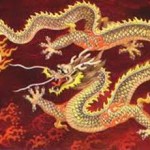In Australia we are expecting a good year for public relations practitioners in 2012, and we are relying on forecasters like Treasury Secretary Martin Ferguson and the Holmes Report (see A rosy future of Australian Public Relations? and A rosy future of Australian Public Relations #2 ?).
Now Bloomberg gives us another bullish indicator – 2012 is the Year of the Dragon, a year that the Chinese zodiac calendar associates with wealth and power. Below… well, are we anticipating that 2012 is even better for young public relations practitioners who are planning a family?

Year of the Dragon May Give China’s Economy a Lift
Companies bet on rising births in a year linked to power and wealth. The every-12-year event “will boost the demand for infant products”
Anticipated growth rate for China’s baby food market in 2012: 22%
By Vinicy Chan
Smart executives know how to read business cycles. In China, some businesses also play close attention to demographic ones—especially the traditional spike in births associated with the Year of the Dragon, which starts on Jan. 23. More women in the world’s most populous nation are expected to try to time their pregnancies to fall in a year that the Chinese zodiac calendar associates with wealth and power. And the trend could be more pronounced this time, given the Chinese government’s more relaxed policies on family size. That may mean higher demand for infant and toddler products in the years ahead. Explains Michele Mak, a consumer sector analyst at BNP Paribas: “The dragon year baby boom is almost a sure thing, which will boost the demand for infant products such as baby formula, diapers, and clothes.”
Five percent more babies are typically born in a dragon year—the last one was in 2000—because many parents want their progeny to be associated with the icon of China’s emperors, says Tak-Hong Cheung, who runs the obstetrics and gynecology department at Prince of Wales Hospital in Hong Kong. That baby bump will add fuel to population growth that’s already expected to reach 1.388 billion by 2020, up from 1.334 billion in 2009, according to the United Nations.
China set a one-child policy in 1979 to curb population growth and drive prosperity. Now, facing an aging labor force, Beijing is allowing couples who are both only children to have two kids of their own. Rural couples whose first child is a girl over four years old also are allowed a second. As incomes rise, Chinese parents have more to spend on children. Per capita disposable income for households in towns and cities rose 8 percent last year, to 19,109 yuan ($3,003), almost doubling from 2005.
Liu Tongyou, chief financial officer of Goodbaby International Holdings, a Shanghai-based maker of strollers, tricycles, and baby chairs, foresees a pickup in sales in China next year from the predicted baby boom. The company’s China sales could grow “twice as fast” as those in the U.S. market in 2012, he says. About 28 percent of the company’s revenue of HK$1.97 billion ($253.5 million) in the first half of 2011 came from China, although Liu won’t make a specific forecast for next year.
Michael Qi, an investor relations consultant at formula maker Yashili International Holdings, which had 2010 sales of 2.95 billion yuan, also expects “the baby boom to boost the sales of our products,” he says. “The outlook is very promising.” Qi says the company will be able to meet any surge in demand since it is currently using only 70 percent of its manufacturing capacity.
Diaper sales will grow, from 24.3 billion yuan in 2011 to 28.4 billion yuan in 2012, researcher Euromonitor International estimates. And China’s baby food market will grow about 22 percent, to more than 68 billion yuan, in 2011 and almost double, to 136 billion yuan, by 2015, Euromonitor estimates.
Investors in stocks of Chinese dairy companies got hammered three years ago after tainted formula killed at least six infants, but they’re buying again. Inner Mongolia Yili Industrial Group shares dropped 67 percent in 2008 after reports that 22 companies sold products containing melamine. Since then, the stock has jumped more than fivefold. Milk producer China Mengniu Dairy lost 65 percent of its market value in 2008, but has since seen it more than double.
Still, Chinese makers of baby products face tough competition from overseas manufacturers because consumers continue to view local brands “as less trustworthy,” says James Roy, a consultant at China Market Research Group. Foreign companies already dominate in baby food. Illinois-based Mead Johnson Nutrition Group (MJN) had the biggest market share in infant formula in China last year with 11.7 percent, followed by France’s Danone at 9.8 percent. China’s Beingmate Group had 9.2 percent, and Yili 7.9 percent. Says Roy: “For those who can afford it, they will definitely go for imported foreign brands.”
The bottom line: A 5 percent baby bump is expected during China’s upcoming Year of the Dragon, which may power increased demand for baby goods.





